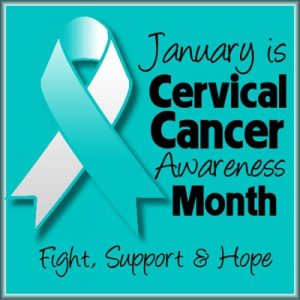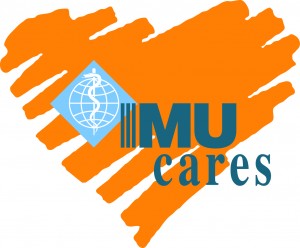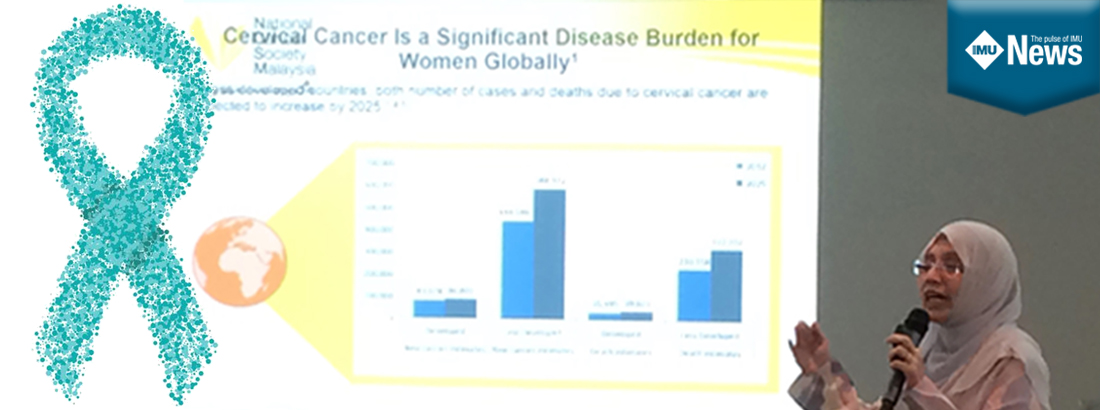Each year, an estimated 12,000 women are diagnosed with cervical cancer. Alarmingly, about one-third of these women die as a result of the cancer. However, the good news is that cervical cancer is actually one of the highly preventable and treatable cancers. 
 In conjunction with Cervical Cancer Month, the Centre for Cancer and Stem Cells Research (CSCR) of the Institute for Research, Development, and Innovation (IRDI), International Medical University (IMU) kick-started 2019 by successfully organising Cervical Cancer Public Awareness Forum on 11 January 2019 at IMU’s Bukit Jalil campus. The main objective of this forum was to educate and advocate for increased understanding of cervical cancer in the public. It was a collaborative programme with IMU Healthcare, IMU Cares, and National Cancer Society Malaysia (NCSM). Keynote speakers for this forum were Dr Kavitha Nagandla and Dr Daliah Kamaruddin. Dr Kavitha, an Obstetrics and Gynaecologist of IMU Healthcare gave an overview of cervical cancer. Her main interests are in advocating cancer awareness, advanced colposcopy for screening and treatment. This was followed by Dr Daliah who is the Head and Medical Officer of Cancer and Health Screening Clinic at National Cancer Society Malaysia (NCSM) deliberating on the prevention and detection of cervical cancer.
In conjunction with Cervical Cancer Month, the Centre for Cancer and Stem Cells Research (CSCR) of the Institute for Research, Development, and Innovation (IRDI), International Medical University (IMU) kick-started 2019 by successfully organising Cervical Cancer Public Awareness Forum on 11 January 2019 at IMU’s Bukit Jalil campus. The main objective of this forum was to educate and advocate for increased understanding of cervical cancer in the public. It was a collaborative programme with IMU Healthcare, IMU Cares, and National Cancer Society Malaysia (NCSM). Keynote speakers for this forum were Dr Kavitha Nagandla and Dr Daliah Kamaruddin. Dr Kavitha, an Obstetrics and Gynaecologist of IMU Healthcare gave an overview of cervical cancer. Her main interests are in advocating cancer awareness, advanced colposcopy for screening and treatment. This was followed by Dr Daliah who is the Head and Medical Officer of Cancer and Health Screening Clinic at National Cancer Society Malaysia (NCSM) deliberating on the prevention and detection of cervical cancer.
| Take-home message |
|---|
| The take-home message from this forum was that not all women with detected human papillomavirus (HPV) will develop cervical cancer. Only women with persistent HPV (where the virus does not go away) are at risk for cervical cancer. The forum also raised the audience’s awareness by narrating the risk factors and symptoms of cervical cancer for early detection. |
Essentially, the forum emphasised that cervical cancer can be prevented by pap smear coupled with HPV vaccinations. The vaccine can be given to any girls above 9 years old and it is highly recommended for women of 9-45 age groups. The most effective time to vaccinate girls and young women is before they become sexually active. After all, prevention is better than cure.









